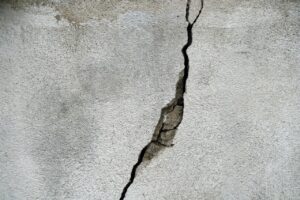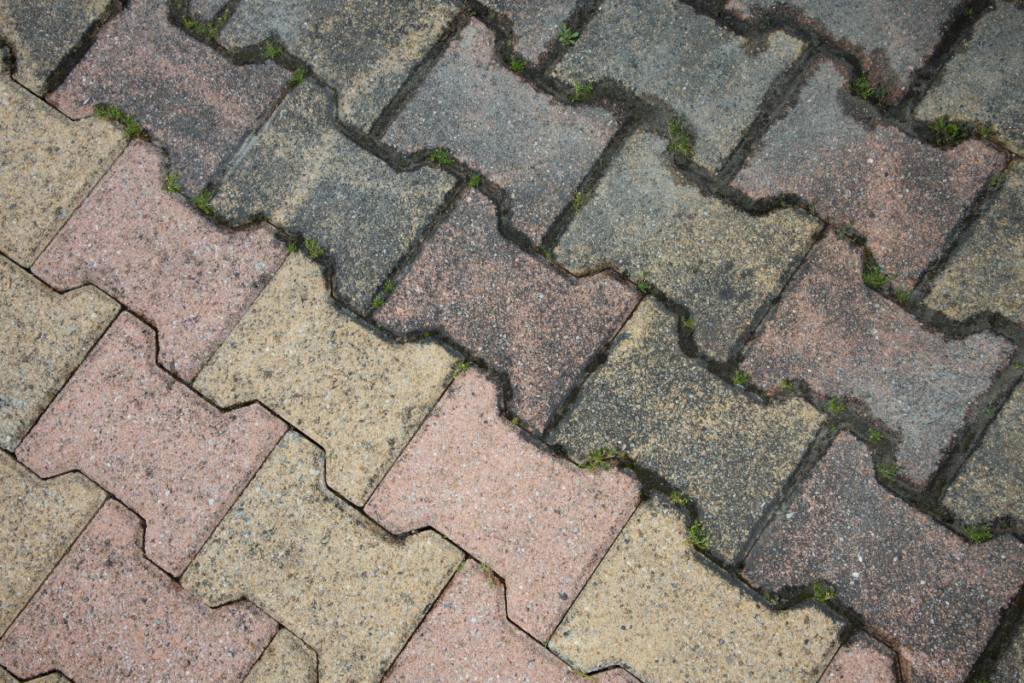A concrete driveway is a significant investment for any homeowner in Australia. After pressure washing your driveway to remove dirt and grime, it’s essential to consider the next step in maintaining its integrity: applying a sealer.
Failing to seal your driveway can lead to costly repairs down the line. By applying a quality sealer, you can prevent damage and maintain your driveway’s appearance.
Key Takeaways
- Sealing your concrete driveway is crucial after pressure washing.
- A sealer protects the concrete surface from water, UV rays, and contaminants.
- Sealing extends the life of your driveway.
- Failing to seal can lead to costly repairs.
- A quality sealer maintains your driveway’s appearance.
Understanding Concrete Driveways and Their Vulnerabilities
Understanding the nature of concrete and the challenges it faces is crucial for maintaining a driveway’s condition. Concrete driveways are a popular choice due to their durability and aesthetic appeal. However, they are not immune to damage.
The Porous Nature of Concrete
Concrete is inherently porous, with voids that can fill with dirt, contaminants, and water. This porosity makes it susceptible to various forms of damage.
Common Threats to Concrete Surfaces in Australia
Australian concrete driveways face unique challenges due to the country’s climate and environmental conditions.
Weather-Related Damage
Weather-related factors such as heavy rainfall, intense sunlight, and temperature fluctuations can cause significant stress to concrete surfaces, leading to cracks and deterioration.
Chemical Exposure and Staining
Chemical spills and staining are common issues for concrete driveways. Substances like oil, acid, and salt can penetrate the surface, causing discolouration and damage.
Signs Your Concrete Driveway Needs Attention
Identifying the signs of wear and damage early can help prevent further deterioration. Some key indicators include:
- Cracks in the surface
- Discolouration or staining
- Erosion of the concrete surface
- Presence of mould or mildew
Regular inspection and maintenance are crucial for extending the lifespan of your concrete driveway.
 The Benefits of Sealing After Pressure Wash
The Benefits of Sealing After Pressure Wash
Enhancing the durability and appearance of your concrete driveway involves a simple yet effective step: sealing after pressure washing. This process not only revitalises the look of your driveway but also provides a protective layer against various environmental factors.
Enhanced Protection Against the Elements
Sealing your concrete driveway after pressure washing significantly enhances its protection against the elements. Australia’s harsh climate, characterised by intense sunlight, heavy rainfall, and extreme temperatures, can cause considerable wear and tear on unsealed concrete surfaces. A quality sealer acts as a barrier, shielding the concrete from UV damage, water penetration, and thermal stress, thereby reducing the risk of cracks and deterioration.
Prevention of Mould and Mildew Growth
Mould and mildew are common issues on concrete driveways, particularly in shaded or moist areas. Sealing the driveway after pressure washing helps prevent the growth of these unwanted organisms. By creating a hydrophobic surface, sealers reduce the likelihood of water absorption, which is a key factor in mould and mildew development. This not only improves the appearance of your driveway but also reduces the need for frequent cleaning.
Extended Lifespan of Your Concrete Driveway
Applying a concrete sealer after pressure washing can significantly extend the lifespan of your driveway. By protecting the concrete from environmental stressors and reducing the risk of damage, sealers help maintain the structural integrity of the driveway. As supported by various studies, sealing can prolong the life of concrete surfaces, making it a cost-effective maintenance strategy in the long run.
Improved Aesthetic Appeal
A sealed concrete driveway not only lasts longer but also looks better. The sealer enhances the colour and texture of the concrete, giving it a fresh, revitalised appearance. Moreover, some sealers are available in various finishes, allowing homeowners to choose the look that best suits their property. Whether you prefer a matte or glossy finish, sealing your driveway can significantly improve its aesthetic appeal.
Easier Maintenance and Cleaning
Sealing your driveway makes maintenance and cleaning easier. The sealer creates a smooth, non-porous surface that resists dirt and stain penetration. This means that dirt and grime are less likely to adhere to the surface, making it easier to clean. Regular sweeping and occasional washing are all that’s needed to keep your driveway looking its best.
In summary, sealing your concrete driveway after pressure washing offers numerous benefits, including enhanced protection, prevention of mould and mildew, extended lifespan, improved aesthetic appeal, and easier maintenance. By incorporating this simple step into your maintenance routine, you can enjoy a durable, attractive driveway for years to come.
Types of Concrete Sealers for Australian Conditions
To ensure the longevity of your concrete driveway in Australia, it’s essential to understand the different types of concrete sealers and their applications. The right sealer can protect your driveway from the harsh Australian climate, enhancing its durability and appearance.
The Australian climate, known for its intense sunlight, heavy rainfall, and extreme temperatures, demands a sealer that can withstand these conditions. Various types of sealers are available, each with its unique characteristics and benefits.
Penetrating Sealers
Penetrating sealers are designed to penetrate the concrete surface, providing protection from within. They are ideal for Australian conditions as they help to prevent water ingress and reduce the risk of damage from freezing temperatures. These sealers are suitable for most concrete types and are relatively easy to apply.
Acrylic Sealers
Acrylic sealers, on the other hand, form a protective film on the surface of the concrete. They are available in various sheens and are known for their ease of application and maintenance. Acrylic sealers are a popular choice for Australian homeowners due to their UV resistance and ability to enhance the appearance of the concrete.
Polyurethane and Epoxy Sealers
Polyurethane and epoxy sealers are high-performance coatings that offer superior protection against heavy wear and tear. They are particularly suitable for high-traffic areas and are often used in commercial settings. These sealers are known for their durability and chemical resistance, making them an excellent choice for Australian conditions.
Choosing the Right Sealer for Your Specific Concrete
Choosing the right sealer depends on the type of concrete, its intended use, and the level of protection required. For instance, penetrating sealers are ideal for concrete that is prone to water ingress, while acrylic sealers are better suited for surfaces that require a decorative finish. Polyurethane and epoxy sealers are perfect for high-traffic areas or surfaces that are exposed to harsh chemicals.
By understanding the different types of concrete sealers and their applications, you can make an informed decision and select the best sealer for your specific needs. This will help ensure that your concrete driveway remains protected and looks its best for years to come.
 The Proper Process: From Pressure Washing to Sealing
The Proper Process: From Pressure Washing to Sealing
To achieve a durable and visually appealing concrete driveway, it’s crucial to follow the proper process from pressure washing to sealing. This process not only enhances the aesthetic appeal of your driveway but also protects it from various environmental factors.
Preparing Your Driveway for Pressure Washing
Before you start pressure washing, it’s essential to clear your driveway of any debris, such as leaves or branches, to ensure a smooth and effective cleaning process.
Remove any furniture or vehicles from the area to be cleaned, and cover nearby plants or sensitive surfaces to protect them from the high-pressure water stream.
Effective Pressure Washing Techniques
The most effective way to clean concrete is by pressure washing it, using a wide fan tip and keeping the nozzle at least 300mm away from the surface to avoid damaging the concrete.
Use a low-pressure setting initially to test the surface and adjust as necessary to remove dirt and grime effectively.
Post-Pressure Washing Preparation
After pressure washing, allow the driveway to dry completely before proceeding with any further treatments. This step is crucial as it ensures that the surface is ready for sealing.
Inspect the driveway for any remaining dirt or stains and address these areas as needed before applying the sealer.
Applying the Sealer Correctly
It’s essential to prepare the surface properly before applying the sealer, ensuring it’s clean, dry, and free of any contaminants.
Apply the sealer according to the manufacturer’s instructions, typically using a roller or sprayer to achieve an even coat.
Maintenance Schedule: When to Reapply Sealer
The frequency of reapplying sealer depends on the type of sealer used and the conditions your driveway is exposed to, such as weather and traffic.
Generally, it’s recommended to reapply sealer every 2-5 years, but always consult the manufacturer’s guidelines for the most appropriate maintenance schedule.
Conclusion
Sealing your concrete driveway after pressure washing is a crucial step in maintaining its integrity and extending its lifespan. By doing so, you protect it from damage caused by environmental factors and daily wear and tear.
The benefits of sealing are multifaceted, including enhanced protection against the elements, prevention of mould and mildew growth, and improved aesthetic appeal. Regular maintenance, including periodic sealing, is essential to ensure your driveway remains in good condition.
By incorporating sealing into your maintenance routine, you can significantly prolong the life of your concrete driveway. This proactive approach not only safeguards your investment but also enhances the overall appearance of your property.
Get professional help with Pressure Cleaning Guys and enjoy a well-maintained driveway for years to come.
FAQ
Why is it essential to seal a concrete driveway after pressure washing?
Sealing a concrete driveway after pressure washing is crucial to protect your concrete from moisture, UV rays, and other contaminants. Concrete is porous and, without sealing, it absorbs water and debris, which can compromise the integrity of the concrete over time. Applying a high-quality concrete sealer after cleaning and sealing ensures your concrete remains in top condition and helps protect your investment.
What are the benefits of sealing a concrete driveway?
There are many benefits of concrete driveway sealing. It protects outdoor surfaces such as patios, walkways, and driveways from being exposed to the elements. Sealing surfaces prevents mould and mildew growth and makes them much easier to clean and maintain. Sealing not only extends the lifespan of your driveway but also enhances the appearance of your home and ensures that the concrete not only lasts but also remains in pristine condition.
How often should I reapply sealer to my concrete driveway?
The frequency to reapply the sealer depends on the sealing service used and how much the surface is exposed to the elements. Typically, driveway sealing is recommended every 3–5 years. Routine cleaning and reapplication help protect your concrete and maintain a newly sealed driveway’s effectiveness and appearance.
What type of sealer is best for my concrete driveway?
The best type of sealer for your concrete driveway depends on the specific conditions and type of concrete. Penetrating sealers, acrylic sealers, and polyurethane and epoxy sealers are suitable options for Australian conditions. It’s essential to choose a sealer that suits your driveway’s needs.
Can I seal my concrete driveway myself, or should I hire a professional?
While DIY concrete sealing is possible, hiring professional cleaning experts ensures proper preparation and application. Professional pressure services use power washing or high pressure cleaning to make sure the surface is clean and dry before sealing. This helps avoid common issues like sealer failure and ensures a more durable finish for your newly sealed driveway.
How do I prepare my concrete driveway for sealing?
To prepare your concrete driveway for sealing, you should pressure wash the surface to remove dirt and contaminants, allow it to dry completely, and then apply the sealer according to the manufacturer’s instructions.
What are the signs that my concrete driveway needs to be sealed?
Signs that your concrete driveway needs to be sealed include cracks, discolouration, wear, and the presence of mould and mildew. If you notice any of these signs, it’s essential to inspect and maintain your driveway to prevent further damage.
Can sealing my concrete driveway help prevent mould and mildew growth?
Yes, sealing your concrete driveway can help prevent mould and mildew growth by creating a barrier that prevents moisture from penetrating the surface. This makes it easier to maintain a clean and healthy driveway.
How does sealing my concrete driveway improve its aesthetic appeal?
Sealing your concrete driveway improves its aesthetic appeal by enhancing the colour and texture of the concrete, making it look newer and more vibrant. A well-maintained driveway can also boost your home’s curb appeal.




